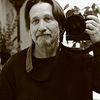Question on Professionalism in Photography
May 8, 2017 18:52:49 #
I retired back in 93. In the film days we could not check out our shots. When I took the group shots I always took three just to make sure I didn't catch someone with their eyes closed. I would take the shot, than take one step to the right, take a shot, then two to the left and take the third shot. It really helped when picking out the negative. You could see where some ones head lined up with the background.
May 8, 2017 19:08:52 #
JuxtaposePictures
Loc: San Diego
amfoto1 wrote:
It depends... In some situations, I've seen photog... (show quote)
Your thoughts and work flow sounds very similar to mine.
May 8, 2017 19:10:16 #
That's crazy, i always at lease in the beginning of a shoot to check your composition, white balance, light, foreground , back ground, depth of field, and so on.. Why wouldn't you?
May 8, 2017 19:13:39 #
Gene51 wrote:
Correct! viewfinder gives you focus confirmation, ... (show quote)
Thanks Gene.
I've decided that when I win the lottery, I'll pay you a Buck an hour to shadow you around and do things to learn. You can tell everybody that he pays me a hundred dollars an hour so I put up with him.


May 8, 2017 19:20:33 #
SharpShooter wrote:
I guess if I have a habit of farting after every shot and can convince everyone else that, THAT is the sign of a true professional, more power to me.
I do chimp many of my shots, but rarely fart afterward!!! LoL
SS
I do chimp many of my shots, but rarely fart afterward!!! LoL
SS
Some of my best photos i fart just before taking it.
F.A.R.T. as i understand it. F. find the photo. A. ask yourself what makes this a great image,what makes this image better than other images, R. refine. composition, lighting, foreground, back ground, angle of view,ect. Then after all that T. take the photo. Oh yeah, and before i take the photo i think of sex. S,simplify EX. and exclude. It works! LOL
May 8, 2017 19:21:35 #
That's crazy, i always at lease in the beginning of a shoot to check your composition, white balance, light, foreground , back ground, depth of field, and so on.. Why wouldn't you?
May 8, 2017 19:22:38 #
May 8, 2017 19:29:45 #
May 8, 2017 19:34:28 #
Marionsho wrote:
Thanks Gene.
I've decided that when I win the lottery, I'll pay you a Buck an hour to shadow you around and do things to learn. You can tell everybody that he pays me a hundred dollars an hour so I put up with him.

I've decided that when I win the lottery, I'll pay you a Buck an hour to shadow you around and do things to learn. You can tell everybody that he pays me a hundred dollars an hour so I put up with him.


?

May 8, 2017 19:39:55 #
This "chimping" thing...I don't know where the descriptor for "checking a photograph" came from, nor do I know if it's truly necessary after every shot. From experience, I know that shooting Polaroids in the studio before exposing the final films became SOP when it became available. Prior to that, many of the studios I worked for had their own in house labs, and those that didn't had a nearby lab to do a "clip" test. I worked in some of those labs too. All I can add to the conversation is this: every advantage one can make use of before leaving the scene/set/site should be. Just because you THINK you got it right doesn't mean you did. I'm sure many photographers of the past wished they had such advantages. I'm also sure many photographers, my self included, were often delighted and on occasion disappointed after "souping" and proofing their sessions. I've seen film shot wedding disasters in which the poor photographer had no idea his shutter was no longer responding to his settings, and 300 exposures were literally a blur. Yes, some confidence in ones experience is necessary, yes, some shots will be lost in "over-chimping". Scene to scene lighting checks necessary? you bet. Chimping every shot? I don't think so. We can overcome the disaster of a closed eye or a mixed expression by taking advantage of the multiple exposure capabilities our modern digitals offer.
May 8, 2017 20:33:21 #
It sounds like photo snobbery to me. Why wouldn't you check to see if you got the shot you want? You have a chance to do it over again if you missed it. Maybe somebody blinked or turned their head at the last second. You will never get another chance to get the wedding shots right.
May 8, 2017 21:17:35 #
May 8, 2017 21:38:22 #
Kelson wrote:
Some of my best photos i fart just before taking it.
F.A.R.T. as i understand it. F. find the photo. A. ask yourself what makes this a great image,what makes this image better than other images, R. refine. composition, lighting, foreground, back ground, angle of view,ect. Then after all that T. take the photo. Oh yeah, and before i take the photo i think of sex. S,simplify EX. and exclude. It works! LOL
F.A.R.T. as i understand it. F. find the photo. A. ask yourself what makes this a great image,what makes this image better than other images, R. refine. composition, lighting, foreground, back ground, angle of view,ect. Then after all that T. take the photo. Oh yeah, and before i take the photo i think of sex. S,simplify EX. and exclude. It works! LOL
I'm absolutely sure I'm going to steal that.
Thanks a million.
Marion
May 9, 2017 01:21:24 #
SharpShooter wrote:
I guess if I have a habit of farting after every shot and can convince everyone else that, THAT is the sign of a true professional, more power to me.
I do chimp many of my shots, but rarely fart afterward!!! LoL
SS
I do chimp many of my shots, but rarely fart afterward!!! LoL
SS
I fart all the time. Nothing to do with photography.
May 9, 2017 06:20:02 #
I think if you didn't chimp... you would not be normal! we all want to chimp! if you're a professional... you have to chimp!!! maybe not EVERY shot, but every so often... it is a good thing!!!
I have switched over to shooting with my Sony A7R2, and that camera has such a great viewfinder, that you don't have to chimp!!! you do not have to take your eye away from it!!! you see the image you just captured right on there!!! and the quality is so good, that you would swear you were looking through an optical viewfinder... when in fact it is an electronic one!
I have switched over to shooting with my Sony A7R2, and that camera has such a great viewfinder, that you don't have to chimp!!! you do not have to take your eye away from it!!! you see the image you just captured right on there!!! and the quality is so good, that you would swear you were looking through an optical viewfinder... when in fact it is an electronic one!
If you want to reply, then register here. Registration is free and your account is created instantly, so you can post right away.







